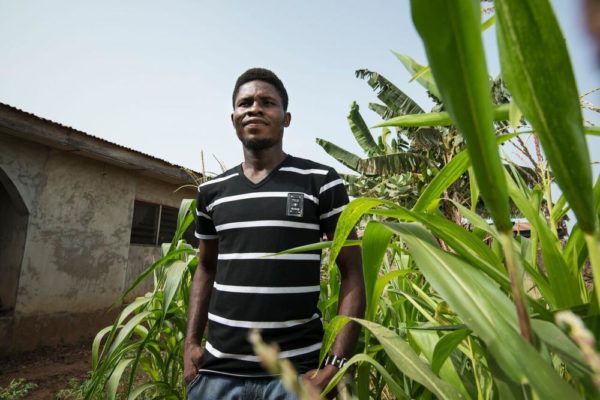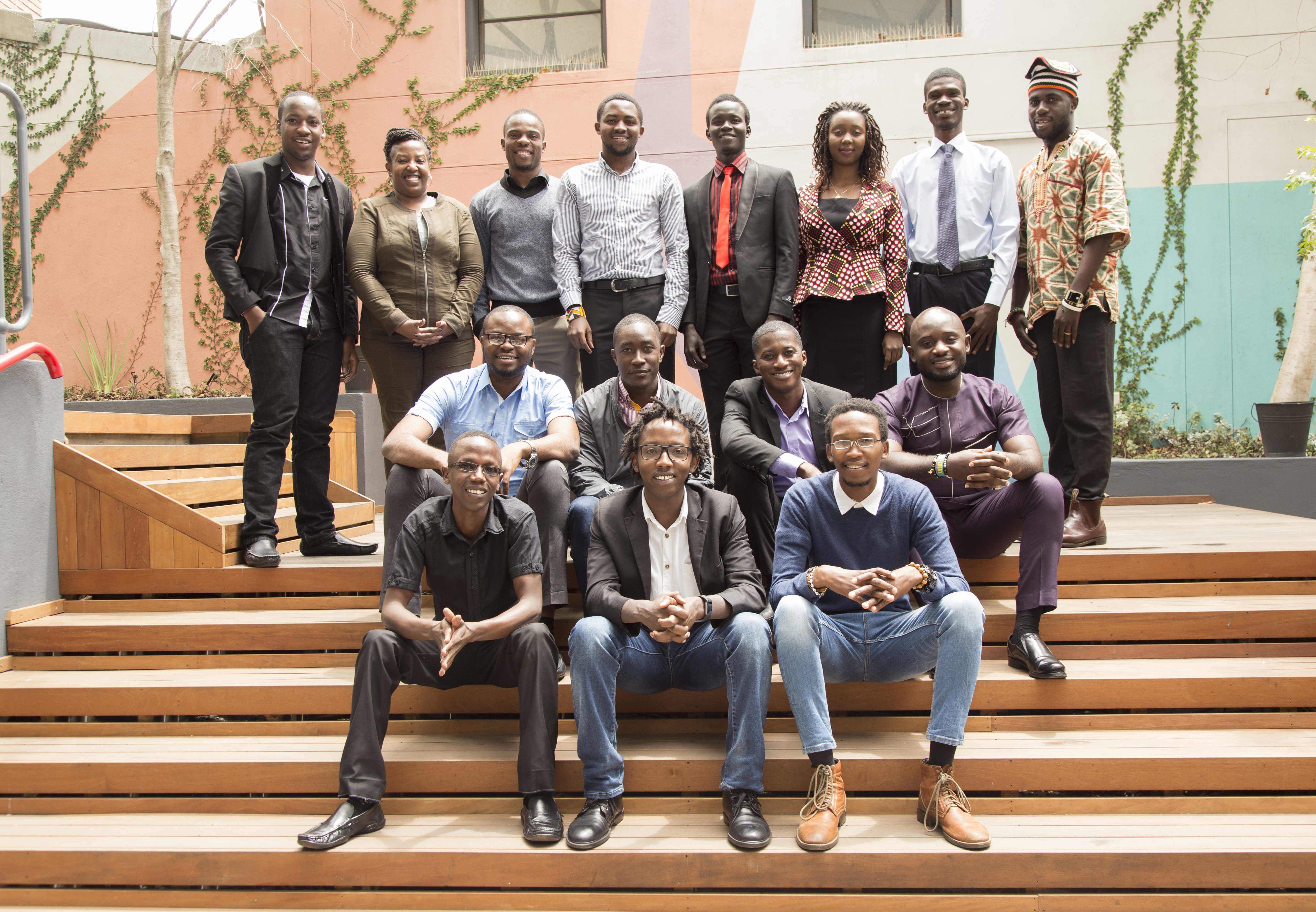Three Nigerians have been chosen as winners of UK Royal Academy‘s Africa Prize for Engineering Innovation.
The shortlist recognises the most talented engineers from across sub-Saharan Africa, including innovators working to make malaria and reproductive health tests easier, using dolphin-inspired echo-location for visually impaired people, and recovering precious metals from car parts for re-use in manufacturing.
Each of the 16 engineers will develop skills that last a lifetime, and become part of a growing community of talented African engineers working to accelerate socio-economic development through business.
After six months’ mentoring and training, four finalists will be selected from the shortlist. In June 2018 the finalists will present their businesses to judges in front of a live audience, after which one winner will receive £25,000, and three runners up will be awarded £10,000 each.
The 3 Nigerians on the list are:
Emeka Obewe Nwachinemere, founder of Kitovu, an online platform that helps rural and remote smallholder farmers triple their crop yields and sell their produce.
The app links the farmer’s location to a soil database to determine the soil types found on a particular farm. Using that information, plus the crop type, it can determine the fertiliser the farmer should use.
In a World Development Report, the International Food Policy Research Institute puts average yield for maize in Nigeria at 1.2 tonnes per hectare, which according to the Food and Agricultural Organisation is a third of the global average. During a pilot of Kitovu, a yield of 3.9 tonnes per hectare was achieved.
Farmers can buy high-quality fertilisers or seedlings through the app, or use it to sell their produce. If a farmer can’t afford to buy the fertilisers or seedlings, they can pay Kitovu with their produce after harvest.
The app is free for farmers, but suppliers and produce buyers pay to use the platform. Kitovu takes a 5% commission on sales made through the platform. The platform also makes money by selling adverts, which are displayed in the app.
The app is aimed at farmers who can’t afford soil tests, but want increased yields, a reduction in post-harvest losses and increased income.
Ifediora Emmanuel Ugochukwu, founder of iMeter, a smart meter that measures energy usage and connects to cell phones or computers that have the AMI software on them. These applications give consumers the ability to manage their smart meters remotely. They can monitor power usage, set budgets, disconnect their meters and make payments. For people with limited internet access, select services can be accessed through text.

More than 30% of meters in Nigeria are tampered with or bypassed, and power utilities resort to bill estimation when this happens. This has reduced access to electricity because consumers who feel that their bills don’t correspond to their usage have been disconnected.
The iMeter and AMI system means that consumers are billed only for the energy they use.
The system detects tampering and notifies the power utilities. This discourages vandalism of power equipment, improves power supplies for communities and reduces deaths by electrocution.
Power utilities can pay a fee for data and real-time analysis provided by the system.
The affordable system also allows two-way communication between consumers and utilities.
Nnaemeka Chidiebere Ikegwuonu, founder of ColdHubs – solar powered walk-in cold rooms that extend the shelf-life of perishable foods from 2 to 21 days.

According to the Rockefeller Foundation, in developing countries like Nigeria, 45% of food is lost due to the absence of cold storage. This leads to a 25% loss of annual income for smallholder farmers.
The ColdHubs are 3 x 3 metres and have solar panels on the roof. Each hub can store up to 3 tonnes of food arranged in 30 kg crates. They use natural refrigerants, which minimises the environmental impacts of the cooling.
The ColdHubs are installed at markets and farm co-operatives. Farmers and retailers can rent space in the cold-hubs and only pay per crate of food stored per day. Excess solar power is stored in batteries to ensure the hubs are kept cold at night and in bad weather.
ColdHubs already has 287 customers using the five hubs that have been installed at different sites in Nigeria.
The other Africans on the list are:
- Alvin Kabwama from Uganda with UriSAF Maternal and Sexual Reproductive Health Care Kit, which tests urine quickly, accurately and affordably
- Arthur Woniala from Uganda with Khainza Energy Gas, a cheap biogas made from manure and safe for household use.
- Brian Gitta from Uganda with Matibabu, a low-cost reusable device that tests for malaria quickly and accurately without drawing blood.
- Brian Mwiti Mwenda from Kenya with The Sixth Sense, a handheld echolocation device with ultrasonic sensors that alert visually impaired users to objects nearby.
- Collins Tatenda Saguru from South Africa with AltMet, an economical, environmentally sustainable process to recover and re-use precious metals from cars.
- Daniel Taylor from Ghana with HWESOMAME, a low-cost smart sensor that accurately detects soil conditions and notifies farmers via text or phone call.
- Esther Gacicio from Kenya with eLearning Solutions, an interactive online programme that hosts courses for individuals or serves as a tool for training institutions.
- Lawrence Okettayot from Uganda with Sparky Dryer, a low-tech dehydrator that dries fruit and vegetables to extend their shelf life and reduce food wastage.
- Michael Asante-Afrifa from Ghana with Science Set, a mini science lab with all the materials needed to do the science experiments in a school syllabus.
- Monicah Mumbi Wambugu from Kenya with Loanbee, a mobile phone application that calculates the user’s credit scores and grants micro-loans.
- Nges Njungle from Cameroon with Muzikol, an online music marketing and social media app designed to meet all the career needs of musicians.
- Peter Kariuki from Rwanda with SafeMotos, an app that connects commuters to the safest motorcycle drivers in Kigali, Rwanda.
- Shalton Mphodisa Mothwa from South Africa with AEON Power Bag, whichallows users to charge their phones on the go by converting radio waves and solar energy into power.








